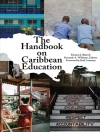Exploring the pernicious influence of security capitalism on neighborhoods, airports, cities, and states.
Calls to defund the police or to stop brutal police violence, argue Mark Maguire and Setha Low, will never succeed as long as there are those who enjoy and take comfort in security capitalism. Security capitalism can be recognized by the marks it leaves on society, remaking public space in its own image—privatized, fortified, unequal, striated, and access-controlled. With a global and comparative lens that takes readers from Nairobi to New York City, Maguire and Low offer intimate portraits of the people behind security capitalism—the police, policy makers, and private contractors who agree that a price must be paid in blood to maintain public safety—and critique phenomena like the transfer of public funds to arms dealers via the militarization of police, securitized housing developments, and ineffectual counterterrorism efforts.
But more than just an exposé of the nefarious corporations, corrupt agencies, and incompetent governments, this book uniquely shines the spotlight on the ordinary citizens whose desires for safety drive these phenomena. Angela Davis has written of the challenge of persuading people that ‘safety, safeguarded by violence, is not really safety.’ Maguire and Low aid us in thinking through the challenge, providing a common language to discuss security capitalism and offering ways to escape its clutches.
Cuprins
Introduction
1. Open the Gates, or You’ll Never Escape
Concept Note: Interior Life
2. Take Back the City: Security as a Way of Life in New York City
Concept Note: Security Capitalism
3. Reimagine Policing
Concept Note: Solutionism
4. Counter Counterterrorism
Concept Note: Security-Industrial Complex
5. Reclaim Homeland Security
Conclusion: Defund Security
Despre autor
Mark Maguire is Professor of Anthropology at Maynooth University. He is the co-author of
Getting through Security: Counterterrorism, Bureaucracy, and a Sense of the Modern.
Setha Low is Distinguished Professor of Environmental Psychology, Geography, Anthropology, and Women’s Studies at the Graduate Center, City University of New York. She is the author of many books, most recently
Why Public Space Matters.












